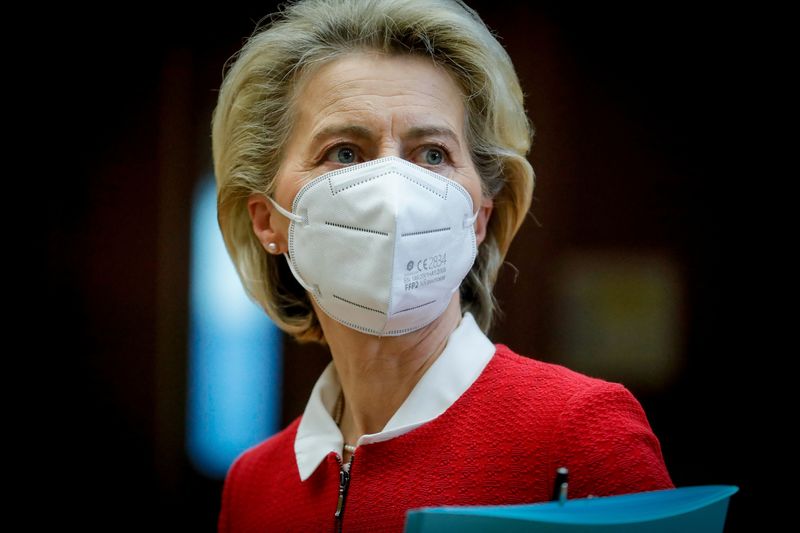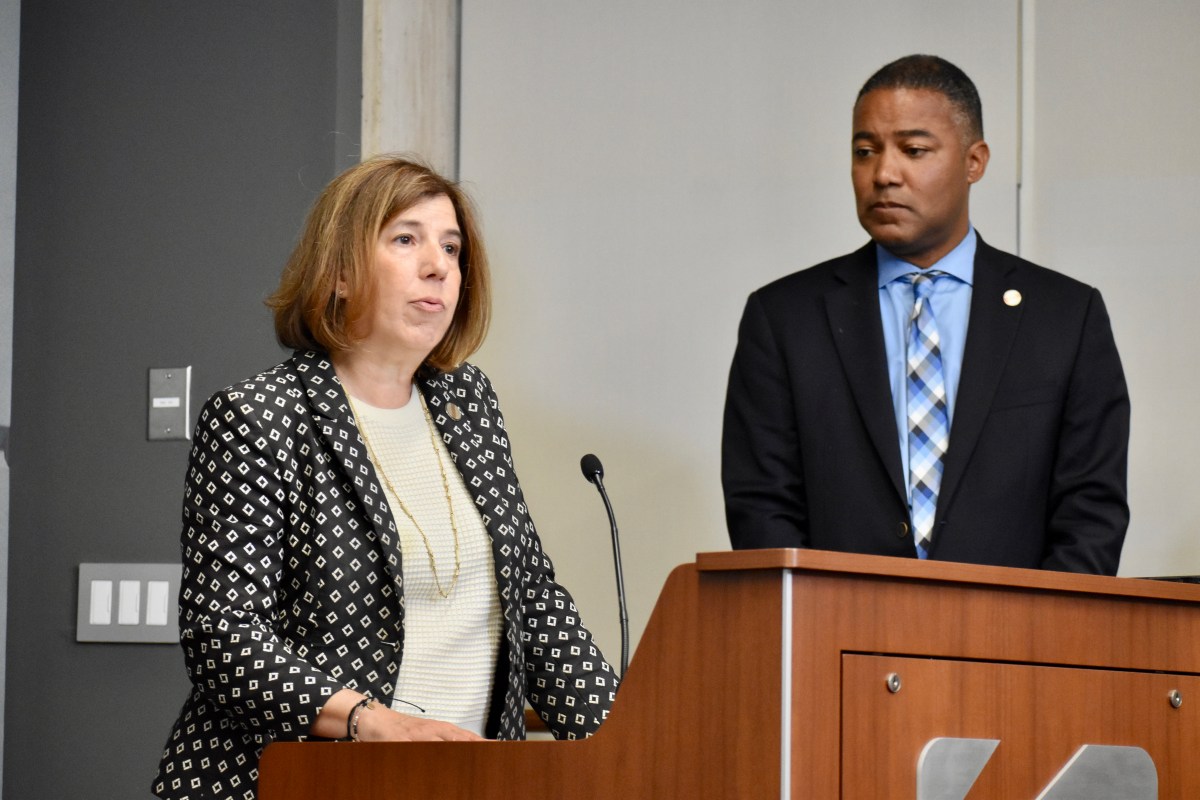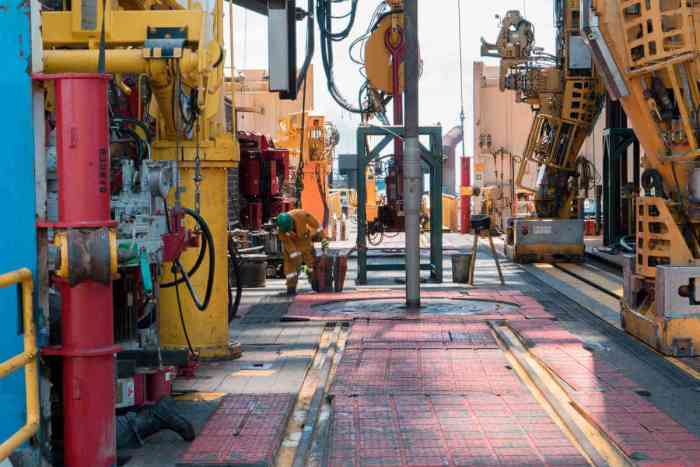BRUSSELS (Reuters) – The European Union is waiting to see the impact of a slew of sanctions on Russia before imposing any more, but it is working on further steps that could include targeting crypto-assets, officials said on Thursday.
The president of the EU’s executive said the bloc would take additional steps against Moscow if the situation on the ground in Ukraine deteriorates further following Russia’s invasion of the country last week.
“Our aim is to cut the Kremlin’s capacity to wage war on its neighbours,” European Commission President Ursula von der Leyen said after a meeting with Romanian President Klaus Iohannis.
The 27-member bloc has approved an array of financial, energy, export and travel bans since last week.
These have included a freeze on Russian central bank assets, the shutdown of EU airspace to Russia, the removal of a number of Russian banks from the SWIFT international payments system, and sanctions on a clutch of Russian tycoons.
“We still have many ideas how we can take work forward when it comes to sanctions, whether it’s on trade, whether it’s on energy, whether it’s on exports, on …. shipping,” said one EU official on condition of anonymity.
“So it is being worked on as we speak. But I think the spirit now … is that we see the implementation and the effect of what we have done so far.”
A second EU official said that while the bloc waits for its sanctions “to bite” there is analysis under way on how to target Russian crypto assets and work on how to “make sure that Belarus can’t be used as a loophole” by Russians to sidestep sanctions.
The officials said Russia appeared to have been surprised by the intensity of EU sanctions and counter-measures have come with a time lag, though it has reciprocally closed its airspace to countries that have banned Russian airlines.
The EU has stopped short of curbing energy imports from Russia, which provides more than a third of Europe’s gas imports and more than a quarter of its oil imports, but is looking for alternative supplies in case of Russian retaliation and trying to diversify its energy-use mix.
“We need to get independent from Russian gas, oil and coal,” von der Leyen said. “Our resolve to go forward in this case is stronger than ever.”

























